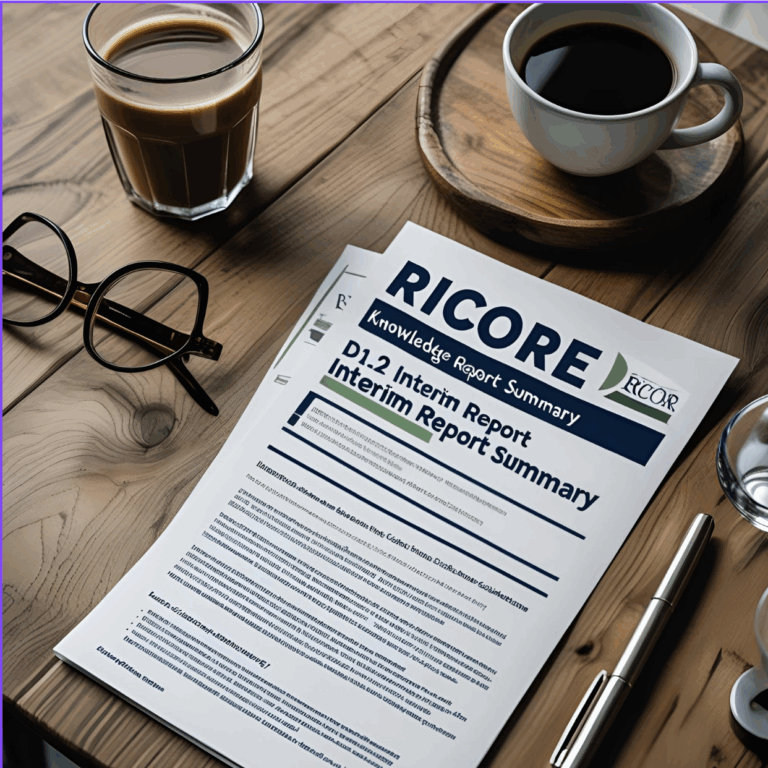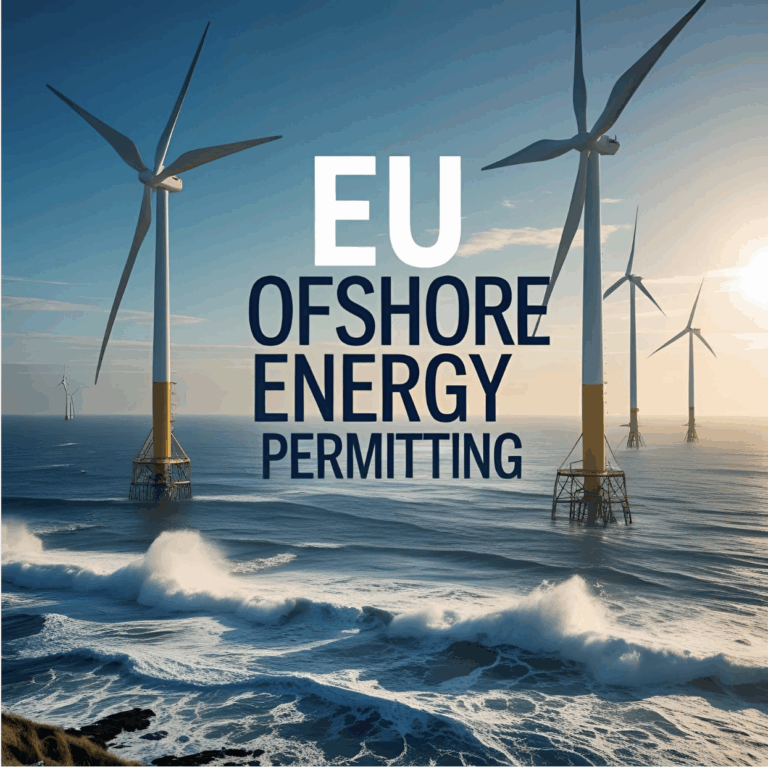The RiCORE D1.3 Final Report marks the conclusion of an 18-month Horizon 2020-funded project focused on reforming the offshore renewable energy (ORE) consenting process in the EU. The project proposed a risk-based framework for licensing small-scale marine energy deployments, aiming to reduce costs, delays, and regulatory inconsistencies.
🔧 Project Purpose
RiCORE aimed to:
- Promote a risk-based approach to environmental consenting
- Reduce unnecessary survey costs for low-risk, small-scale offshore energy arrays
- Harmonize post-deployment monitoring standards
- Provide a legal and practical foundation for EU-wide adaptive management in ORE licensing
🏛 Partners Involved
The project involved 6 main partners:
- Robert Gordon University (Lead, UK)
- Marine Scotland (UK)
- University College Cork (Ireland)
- WavEC Offshore Renewables (Portugal)
- AZTI-Tecnalia (Spain)
- E-CUBE (France)
Plus contributions from:
-
- EMEC (data quality review)
- Aquatera (technical data support)
📦 Work Package Highlights & Key Findings
WP2: National Licensing & Legal Barriers
- Many countries lack ORE-specific licensing frameworks
- There’s inconsistency in applying EU laws like EIA, Birds & Habitats Directives
- Adaptive Management is legally feasible, but admin systems are outdated
- Developers need clearer guidance on risk-based approaches under EU law
WP3: Survey, Deploy and Monitor (SDM) Policy
SDM was expanded to support more technology types
Suggested improvements:
- Extend SDM into post-consent phases
- Define standard criteria for site sensitivity and project scale
- Integrate uncertainty and adaptive feedback loops into risk models
WP4: Pre-Consent Survey Optimization
- Reviewed pre-consent survey practices across EU Member States
- Found wide variance in costs, methods, and regulatory expectations
Proposed using power analysis to:
- Reduce redundant surveys
- Determine when existing data is sufficient
- Align survey intensity with actual risk
WP5: Post-Consent Monitoring Standardization
- Most Member States lack coherent monitoring strategies
- Introduced best practices under the Adaptive Management framework
Emphasized:
- Designing question-led monitoring programs
- Applying statistical rigor
- Reducing scientific uncertainty to speed up future consents
WP6: Dissemination & Outreach
Delivered the RiCORE message through:
- A multi-language project video
- Participation in 15+ international events
- Two final sessions during EU Sustainable Energy Week (Brussels, 2016)
📊 Project Impact Summary
RiCORE aimed to:
- Shorten ORE project timelines
- Lower developer transaction costs
- Build a stronger EU-wide policy framework
- Support strategic goals like the Blue Growth Strategy and Integrated Maritime Policy
It succeeded in creating legal, technical, and procedural tools to help Member States move toward faster, smarter, and more transparent consenting practices.
🧠 Key Terms Explained
Adaptive Management: A “learning by doing” method that evolves based on environmental feedback
SDM (Survey, Deploy, Monitor): A practical model for permitting ORE projects using risk profiling
Risk-Based Approach: Weighing environmental sensitivity, tech risk, and project scale to guide survey intensity and regulatory review
| Workshop Location | Date | Focus Area | Attendees |
|---|---|---|---|
| Bilbao | Apr 2015 | Pre/post-consent monitoring practices | 39 |
| Paris | May 2015 | Licensing risks & regulator perspectives | 23 |
| Dunkeld | Nov 2015 | Draft findings and consensus building | 47 |
| Cork | Apr 2016 | What’s needed to implement risk-based consenting | 37 |
| Brussels | Jun 2016 | Final Conference at EUSEW | 25 |
📄 Download the Full Report (PDF)
📄 RiCORE-D1-3-Final-Report
Authored by: Prof. David Gray & Andy Grinnall (Robert Gordon University)


